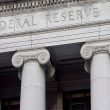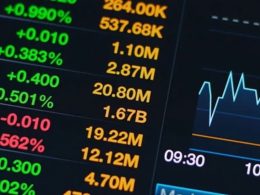This article is a guest contribution by John P. Hussman, Ph.D., Hussman Funds.
 As we survey the current state of evidence from market and economic data, my greatest concern remains that we may be nearing a point that mathematicians call a "discontinuity." With respect to the stock market, valuations remain uncomfortably rich, and market action is tenuous. As I noted last week, "Keep in mind that after a clear break of major support levels, markets often recover back to that previous support, which can create a feeling of 'all clear' complacency. Be careful."
As we survey the current state of evidence from market and economic data, my greatest concern remains that we may be nearing a point that mathematicians call a "discontinuity." With respect to the stock market, valuations remain uncomfortably rich, and market action is tenuous. As I noted last week, "Keep in mind that after a clear break of major support levels, markets often recover back to that previous support, which can create a feeling of 'all clear' complacency. Be careful."
Having largely cleared the recent oversold condition of the market, we are at an important inflection point. A further recovery in market action would most likely create modest further demand from already well-invested speculators and trend followers, and modest offsetting supply from already defensive value-oriented investors, allowing a dull but moderate continuation of upside progress. On the other hand, a deterioration in market action would likely trigger a substantial amount of liquidation by speculators, into a market where fundamentally-oriented investors would require large price adjustments in order to absorb it. That outcome could result in a price discontinuity.
As I've noted before, if something induces one trader to sell, the market must move in a way that either removes that impulse, or induces another trader to buy. In equilibrium, there is no other possibility. When an overvalued market loses support from market internals, it frequently produces discontinuous outcomes ranging from brief "air pockets" to "panics" to "crashes." Emphatically, I am not forecasting or predicting a discontinuity as the only possible outcome, but it is important to recognize that the risk is elevated.
If one thinks of the data as telling a story, the picture here would most decidedly be a cliffhanger - where our hero dangles from a steep precipice, clutching a rock of uncertain strength, and where the evidence is not clear about what outcome will prevail. One outcome is a continuity, and the other is an abrupt discontinuity. It's possible that things will resolve sufficiently well, but we have to consider the possibility that they will not. I am not suggesting that readers and shareholders deviate from careful discipline or well-diversified investment plans. Instead, I am urging them to make sure that a significant market decline would not derail their financial security or future plans, or cause them to abandon their discipline after the fact - something that I've seen investors do far too frequently over the past decade. These considerations are particularly important for investors who will need to satisfy specific expenses (tuition, medical bills, home downpayments) within a short number of years.













